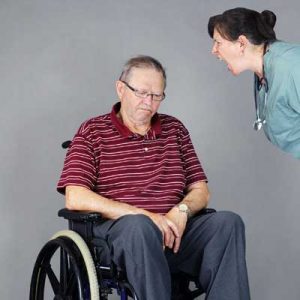Property owners and managers often have many responsibilities ranging from paying bills, dealing with tenants or customers, managing the business, and many other requirements that may take significant amounts of time and energy. In addition to the everyday responsibilities that the managers and owners may face, it is essential that they keep the safety of tenants, visitors, and patrons in mind.
If a property owner fails to provide a safe environment on his or her property and an injury accident occurs, he or she may be held liable for the damages caused by the accident. Personal injury lawsuits often depend on proving that the property owner was negligent or careless with the maintenance, cleaning, or set-up of the property and the accident occurred because of his or her actions. Orlow, Orlow & Orlow, P.C. are happy to provide you with the following information on premises liability and how a New York City personal injury attorney can help you if you are injured on someone else’s property.
The Responsibility of the Property Owner
Property owners should make sure that the area is kept free of hazards that could potentially cause injury to persons who are visiting the premises. Common accidents include:
- Slip-and-fall
- Electrocution
- Trip-and-fall
- Fall from height
- Staircase injuries
- Elevator injuries
- Falling object injuries
If a property manager fails to observe a potential danger or if he or she is warned of a hazard and fails to correct the issue, the injured party may be able to pursue legal action. A New York City personal injury attorney can help you decide what action you may take following an injury accident.
Personal Injury Accidents
In many personal injury cases, the property owner may have been able to prevent the injury by establishing a routine maintenance schedule and quickly attending to any complaints or concerns about potential hazards. Owners who wish to avert possible accidents should:
- Quickly clean up spills and objects left in pedestrian walkways
- Place wet-floor signage to warn of slip-and-fall dangers
- Replace torn or worn carpeting
- Make sure all structures and ceilings are sturdy and reinforced
- Do not allow furniture or other objects to block high-traffic areas
- Remove ice and snow from exterior ramps and stairways
- Manage landscaping to prevent accidents from branches, weeds, and plant growth
If a person suffers serious injury in an accident, he or she may choose to pursue a personal injury claim against the property owner. Personal injury and premises liability claims often rely on proving that the owner had a duty to protect the people visiting his or her property and failed to live up to the expectations of the law. Furthermore, it is essential to prove that the accident was caused by the hazardous conditions on the property, and that the person’s injury was a result of the accident.
These elements are all considered essential for a personal injury case and are referred to in legal terms as a “tort”. A New York City personal injury attorney of Orlow, Orlow & Orlow, P.C may be able to prove your personal injury case by utilizing the elements of tort litigation to prove duty, breach of duty, accident, and injury. If all of the essential elements are present, the injured party may be able to prove his or her case in court.
Persons who have been injured in an accident may seek compensation for pain, suffering, mental and emotional trauma, and medical expenses incurred because of the accident. Personal injury accidents sometimes carry a negative connotation, especially because some may be filed for frivolous reasons. Serious injuries may carry severe consequences and may be very costly for the person who was hurt. In such cases, personal injury lawsuits may be necessary to recoup expenses and gain much-deserved compensation.
If you have questions about personal injury claims, a New York City personal injury attorney of The Orlow Firm can help explain your legal options.


